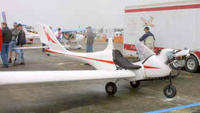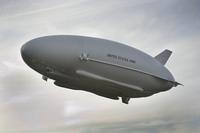-
Bioprinting to help produce an edible cultured meat prototype
Modern Meadow is developing a fundamentally new approach to meat and leather production which is based on the latest advances in tissue engineering and causes no harm to animals; with funding from the Thiel Foundation’s Breakout Labs, they plan to apply the latest advances in tissue engineering beyond medicine to produce novel consumer biomaterials, including an edible cultured meat prototype that can provide a humane and sustainable source of animal protein to consumers around the world
-
-
Toilet Challenge, 1: Caltech’s solar-powered toilet wins Reinvent Toilet Challenge
The World Health Organization reports that 2.5 billion people around the globe are without access to sanitary toilets, which results in the spread of deadly diseases; every year, 1.5 million people, mostly those under the age of five, die from diarrhea; Caltech scientist awarded grant to develop solar-powered sanitation system
-
-
Toilet Challenge, 2: Loughborough’s hydrocarbonization design wins second Reinvent the Toilet Challenge prize
Researchers from Loughborough University, located in Leicestershire, United Kingdom , won second prize in the Reinvent the Toilet Challenge; their toilet uses a process called Continuous Thermal Hydrocarbonization which kills all pathogens to create safe to handle, valuable material and uses power from heat generated during processing
-
-
Toilet Challenge, 3: U Toronto wins toilet challenge third place for sand filter and UV-ray design
The U of T solution is novel in its simplicity. It uses a sand filter and UV-ray disinfecting chamber to process liquid waste and a smolder chamber, similar to a charcoal barbeque, to incinerate solid waste that has been flattened and dried in a roller/belt assembly
-
-
Unmanned civilian drones vulnerable to hijacking
Unmanned drones have become the eyes and ears of the military in recent years, giving them an advantage in intelligence gathering and in operations without risking soldiers’ lives; the drones’ versatility and low price have made them an attractive tool for domestic law enforcement and first response missions; there is one glitch, though: drones can be hijacked; if that happens, these swift, unmanned aircrafts could become weapons for terrorists
-
-
DHS seeks better ways to detect ultra light aircrafts used by smugglers

As the war on drugs continues with every sunrise and sunset, DHS has awarded a contract just short of $100 million for a specialized system which will be able to detect ultralight aircrafts which are used to smuggle drugs across the border
-
-
New earthquake assessment finds increased risk for Washington Dams
Central Washington state has always been considered low risk for earthquakes back when big hydropower dams went up on the Columbia River many decades ago; a recently completed seismic hazard assessment, however, shows that there is a much greater earthquake potential for the area than previously thought; now, dam owners have to figure out whether their dams can hold up to an earthquake; if retrofits are needed, they could cost hundreds of millions of dollars
-
-
U.S. wind power market riding a wave which is likely to crest in 2012
Facing looming policy uncertainty beyond 2012, the United States remained one of the fastest-growing wind power markets in the world in 2011 — second only to China; the expiration of key federal incentives could bring that wave crashing down in 2013, , despite a significant decline in the cost of wind energy
-
-
Report: Sequestration will ground air travelers, cargo, and the U.S. economy
A study released the other day by the Aerospace Industries Association estimates that budget cuts to Federal Aviation Administration (FAA) operations as a result of sequestration could cost up to 132,000 aviation jobs, sap $80 billion a year from the U.S. gross domestic product, and strip almost two billion pounds of freight capacity out of an air cargo system
-
-
New system could predict solar flares, give advance warning to help protect power grids

Researchers may have discovered a new method to predict solar flares more than a day before they occur, providing advance warning to help protect satellites, power grids, and astronauts from potentially dangerous radiation
-
-
Future increases in U.S. natural gas exports may not be as large as thought

Amid policy debate over potential liquefied natural gas (LNG) exports from the United States, a new study predicts the long-term volume of exports from the United States will not likely be very large; the paper also argues that the impact on U.S. domestic natural gas prices will not be large if exports are allowed by the U.S government
-
-
New process doubles production, slashes costs of butanol
Butanol has a 30 percent higher energy content than ethanol, lower vapor pressure, and is less volatile, less flammable, and mixes well with gasoline; a new discovery should make butanol more attractive to the biofuel industry
-
-
Smiths Detection Expands Radiation Offering
Partnership with Mirion enables Smiths Detection to offer customers a fuller range of radiation detection technologies
-
-
Farmers upset by plan for water banking system

Depending on the depth of the drilling, it can take anywhere from two gallons to two million gallons of water to frack one well; drilling companies consumeenough water in their fracking operations to meet the needs of between 66,400 and 118,000 households; in the parched Midwest, farmers raise questions about water-use priorities
-
-
World’s largest blimp passes flight test

The world’s largest, lighter-than-air, optionally piloted aircraft — the U.S. Army’s Long Endurance Multi-Intelligence Vehicle (LEMV) – completed its first test flight in Lakehurst, New Jersey, the birthplace of the U.S. storied military airship past; the LEMV will provide improved ISR capabilities to the U.S. Army in the form of an “unblinking stare” over ground troops, ranging anywhere from one day to multiple weeks
-
More headlines
The long view
Factories First: Winning the Drone War Before It Starts
Wars are won by factories before they are won on the battlefield,Martin C. Feldmann writes, noting that the United States lacks the manufacturing depth for the coming drone age. Rectifying this situation “will take far more than procurement tweaks,” Feldmann writes. “It demands a national-level, wartime-scale industrial mobilization.”
Trump Is Fast-Tracking New Coal Mines — Even When They Don’t Make Economic Sense
In Appalachian Tennessee, mines shut down and couldn’t pay their debts. Now a new one is opening under the guise of an “energy emergency.”
Smaller Nuclear Reactors Spark Renewed Interest in a Once-Shunned Energy Source
In the past two years, half the states have taken action to promote nuclear power, from creating nuclear task forces to integrating nuclear into long-term energy plans.
